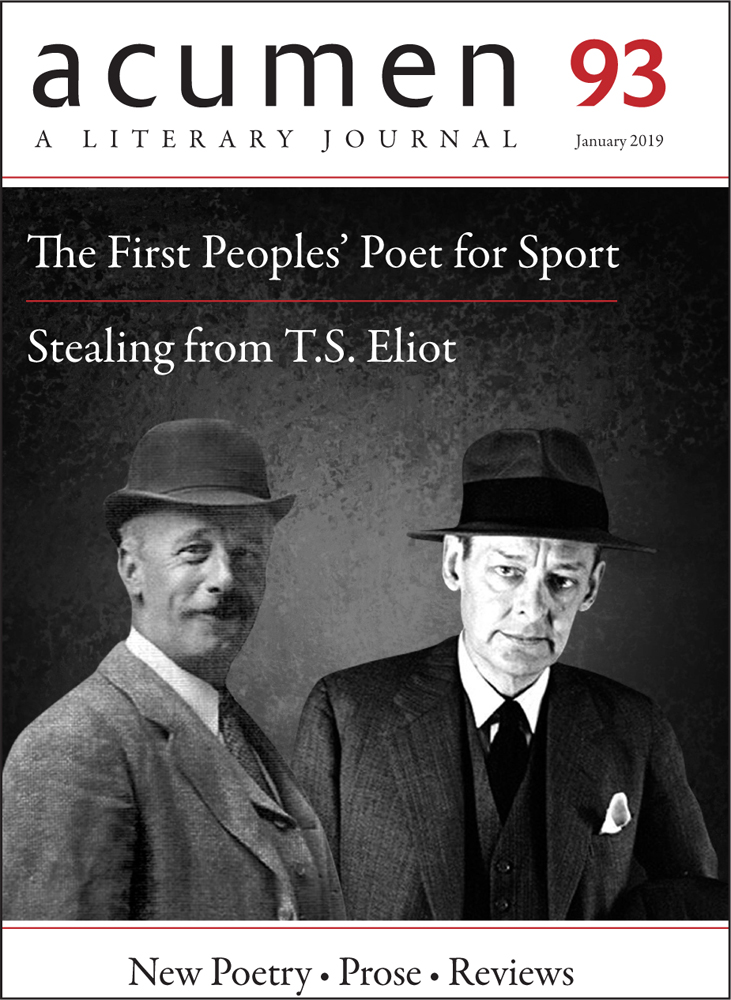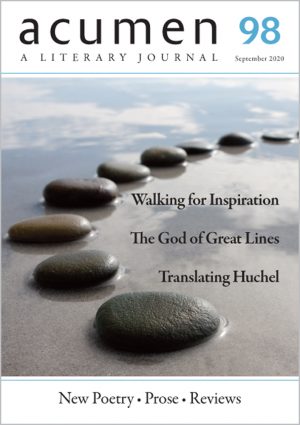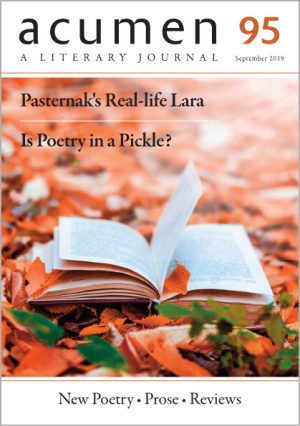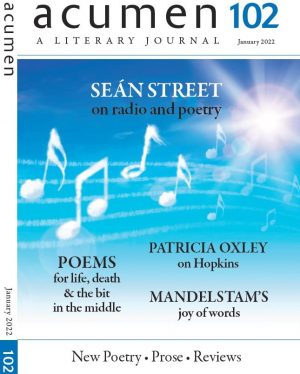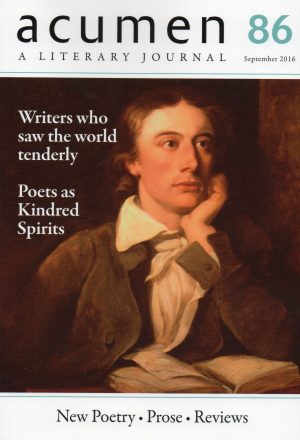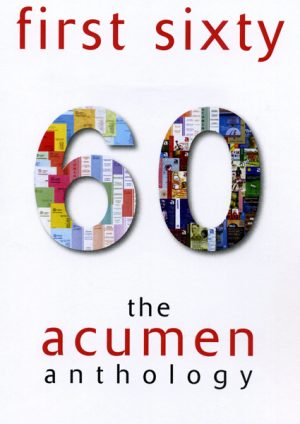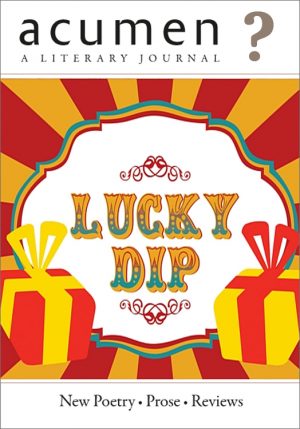Acumen 93 – January 2019
£6.50
Editorial
Poems: Fred Johnston, Gary Allen, Donna Pucciani, Lucinda Carey, Doris Corti, Shanta Acharya,
Keith McFarlane, Wynn Wheldon, Cosima Gillhammer, Roger Harvey, Marc Woodward, Edmund Prestwich.
Responses (i)
Poems: Jacob Lotinga, Bibhu Padhi, Wong Wei Cong, Jill Boucher, John Arnold, Qudsia Akhtar, Nigel Kent.
Poetry in Translation ‒Pengbo Wang (Li Xie), SerhiyZhadan (Alan Zhukovski), Else Lasker-Schüler
(Christine McNeill).
Poems: David Perman, Michael Jennings, Michael Swan, Mike Smith, Nick Grundy.
They Came, They Saw, and They Left– William Oxley.
Poems: Briege Duffaud, Ilse Pedler, Fred Johnston, Caroline Carver, Richard O’Connell, Tim Taylor,
Yoav J. Tenembaum.
Responses (ii)
Poems: Frances Galleymore, Ian Royce Chamberlain, Briege Duffaud, Heather Deckner, Patrick Osada.
Three Solos and Four Quartets ‒June Hall.
Poems: Duncan Forbes, Janet Cameron, Peter Ebsworth, Chris Waters, Christine Griffin.
Obituary – Dr James Hogg.
The Cricketer & Football Rhymester – Andrew Hunt.
Poems: Peter Branson, Colin Pink, Tim Taylor, Mike Jenkins, Michael Swan, Wendy Klein.
Reviews: William Oxley, Fred Beake, Parvin Loloi, Wendy French, Edmund Prestwich, Leah Fritz,
Malcolm Bradley, Nigel Jarrett.
Poetry Comment: Glyn Pursglove.
1 in stock

